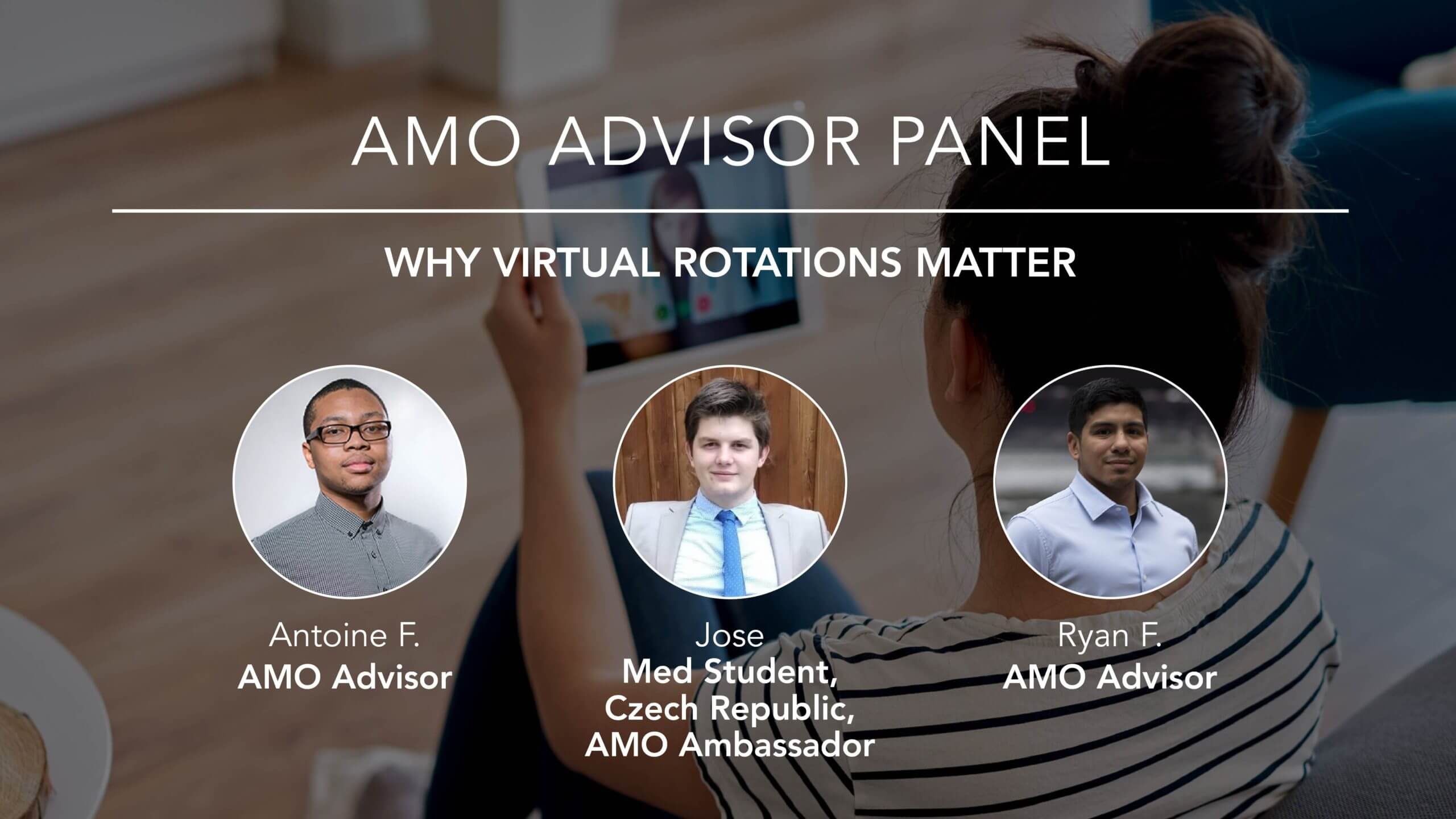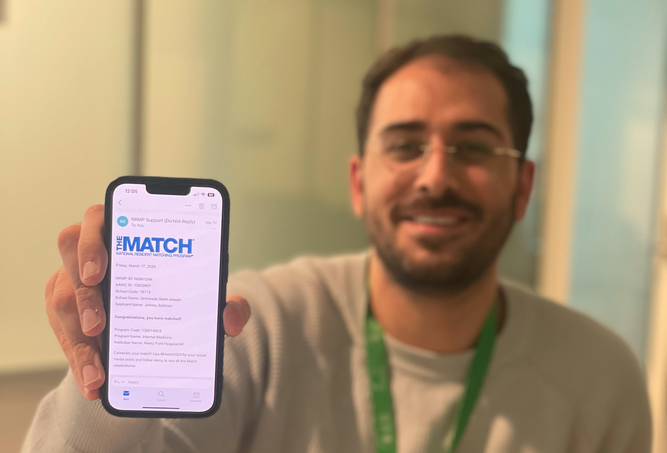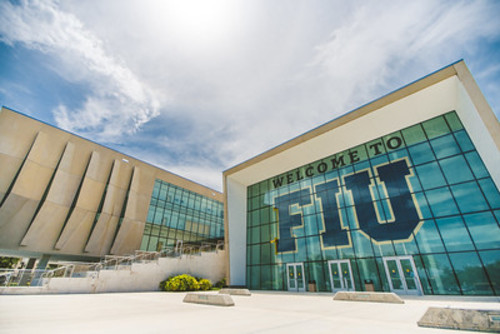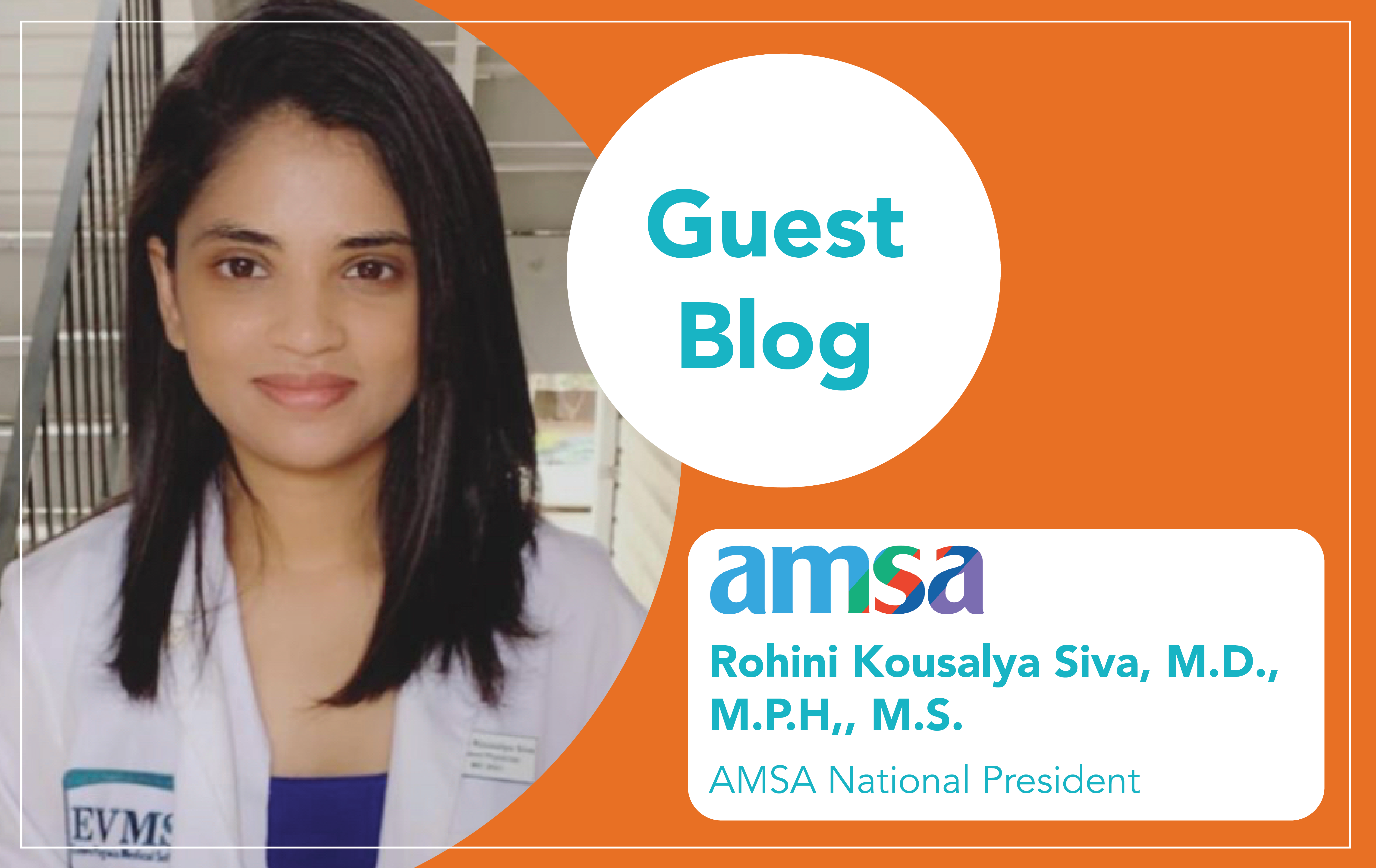Virtual rotations may be convenient, but are they worth the money and time? According to AMO Ambassador and current medical student Jose, the answer is yes!
Jose, who’s currently finishing up his fourth clinical experience, considers these unique learning experiences essential to a well-rounded medical education. He even believes they can help individual’s increase their chances of matching into residency. Jose and AMO Advisors discuss these points and more during their hour-long virtual panel.
For an overview of what you can achieve with a virtual rotation, continue reading below. To watch the panel recording, click here.
What You Can Achieve with a Virtual Rotation
1. Balance
Yes, many medical students are struggling to overcome the challenges introduced by the pandemic. But the pandemic has been here for nearly a year, and it’s time for medical students to move forward with their medical education by actively seeking opportunities to gain clinical skills and knowledge in safe environments. Jose chose to utilize virtual rotations to overcome travel restrictions and balance his school schedule. Jose is participating in a flexible virtual rotation, which is allowing him to get one-on-on information and training from a practicing U.S. plastic surgeon while he is in the Czech Republic. Virtual learning may not always be ideal, but it can be convenient. It can allow you to fit additional training into a busy schedule and learn from an experienced healthcare professional in another country.
2. Professional Skills
For early-year medical students and those new to clinical training, virtual rotations can help develop soft and hard medical skills. Professionalism is one soft skill that is important to learn early on but often not included in school curriculum. Virtual rotations provide an opportunity to develop these in allowing participants to act as understudies and colleagues. Jose suggests that medical students participating in virtual rotations stay active throughout the experience by attending every day as scheduled. Showing up early and often lets your preceptor know you are responsible and dedicated to medicine. Asking questions can help you develop a professional relationship with your preceptor. In a field as competitive as medicine, networking should never be underestimated and can often open new doors.
3. Clinical Skills
Like all clinical experiences, virtual rotations allow participants to develop clinical skills. In 2020, 1/3 of clinical experiences reserved were virtual. Virtual visitors report gaining confidence with recording patient histories and making physical exams. In the virtual setting, there are fewer distractions. This means when the preceptor asks you a question, you must answer it. Being held accountable for what you are learning can help you to digest the material at hand.
4. Knowledge of the U.S. Healthcare System
For those planning to become U.S. physicians, a virtual rotation can provide an early and convenient introduction to the healthcare system. Jose recommends selecting a virtual rotation connected with a U.S. residency program. This type of experience may allow visitors to work with residents or attending physicians, giving them an idea of what to expect in the future.
If you’re planning to practice in a country other than the U.S., a U.S. clinical experience can still be beneficial. Jose points out that expanding your understanding of medicine from a global perspective can help you learn about different techniques, cases, and practices. If you like something you see, you may bring it into your own practice. Experimenting with new healthcare practices might lead to better patient outcomes and satisfaction.
5. Instruction from Skilled Physicians
Instead of reading about medical cases and practicing skills with a dummy, you’ll get to do it in real-time with direction. You’ll get insight from a leading physician or academic medicine professor, which can be difficult to come by. Jose says he has benefited from the quality of AMO rotations and those who host them. During his four rotations, he’s been able to ask questions and get great tips. Some AMO preceptors are IMGs themselves and are known for giving residency advice to those who rotate with them.
6. A Letter of Recommendation
During the panel, Jose highlights three aspects of residency applications that hold the most weight— individual research, USMLE scores, and letters of recommendation. Medical students often wonder if virtual LoRs are as valuable as in-person ones. Jose argues that they are more valuable. An LoR from a virtual rotation secured during the pandemic shows residency programs that you are able and willing to adapt to changes no matter where they come from. To be a good physician, you’ll have to be resilient as things will not always go as planned. You may manage a medical case you have never seen before, or there may be a technology that you will have to incorporate in your practice; in these instances, you must be open to experimentation and change. A virtual rotation is merely an introduction to this.
During the live panel, Jose and our AMO Advisors answered a ton of questions. If you have one that hasn’t been answered, ask our advisors by emailing advisors@amopportunities.org or scheduling a call!
Ready to participate in your own virtual clinical experience?






